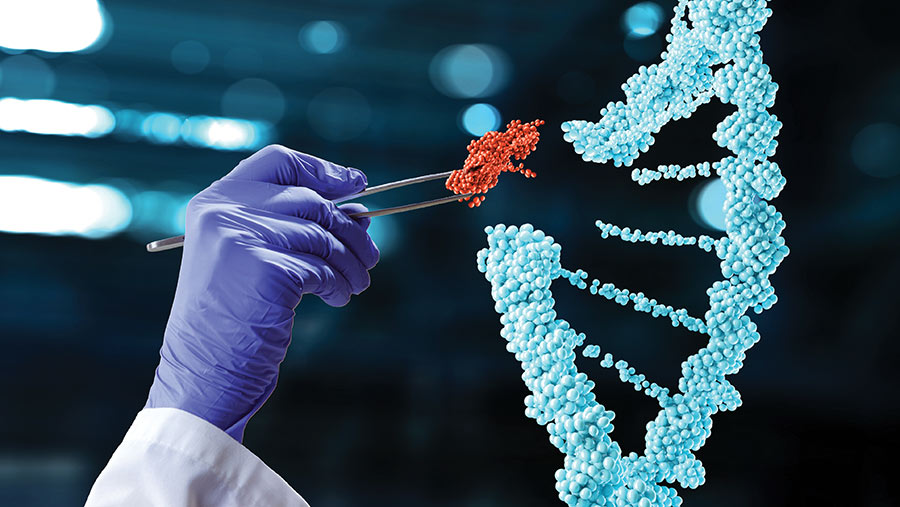Government commits to facilitate gene editing in plants and animals
 © Adobe Stock
© Adobe Stock The government has confirmed it will be bringing forward legislation in the near future to speed up the use of gene editing as a way of improving both crops and livestock.
While a full government response to the consultation it ran earlier in the year is still awaited, a statement from Cabinet Office minister Lord Frost indicated that change is on the way.
“In the coming weeks, secretaries of state across Whitehall will set out bold strategies and proposals for keeping the UK at the forefront of innovation and technology,” the statement said.
See also: Gene editing – the pros and cons for farming
This will include reform of the regulations around gene-edited organisms, “which will enable more sustainable and efficient farming, and help produce healthier and more nutritious food”.
The comments were contained in a government announcement setting out how the UK plans to break away from the EU rule book and “capitalise on the freedoms from Brexit so that our rules and regulations best serve the UK national interest”.
“From rules on data storage to the ability of businesses to develop new green technologies, overbearing regulations were often conceived and agreed in Brussels, with little consideration of the UK national interest,” said Lord Frost.
“We now have the opportunity to do things differently and ensure that Brexit freedoms are used to help businesses and citizens get on and succeed.”
Reforms
Exactly what reforms the government plans in relation to gene editing will become clear in the next few weeks, when Defra publishes its response to the consultation.
A recent report from the Regulatory Horizons Council – an independent adviser to government – suggested a new approach to licencing products derived from genetic technologies.
Product approval should still guarantee food safety, it said, but there should be a better balance between the precautionary principle and potential future benefits.
The end-product rather than the process involved should determine its approval, said the report.
The consultation made clear Defra’s intention to differentiate between gene-edited crops, which could also be produced by natural mutation, and GMOs, which may involve the addition of genes from other species.
Support
Such an approach would have the support of mainstream farming organisations.
NFU Scotland’s crops policy manager David Michie described gene editing as “ just another breeding technique” that could be used to produce better crops and livestock.
“These can have characteristics that will benefit animal welfare, public health, the environment, and farmers,” he said in a blog.
“New varieties can be used as part of a future farming system that will better achieve sustainable practices that politicians and some farmers want to see, like integrated pest management or regenerative farming.
“In the 21st century, a new breeding revolution can also help address the biggest challenges of our time – climate change. Gene editing is a tool that should be taken out and used to move forward to a net-zero future.”
